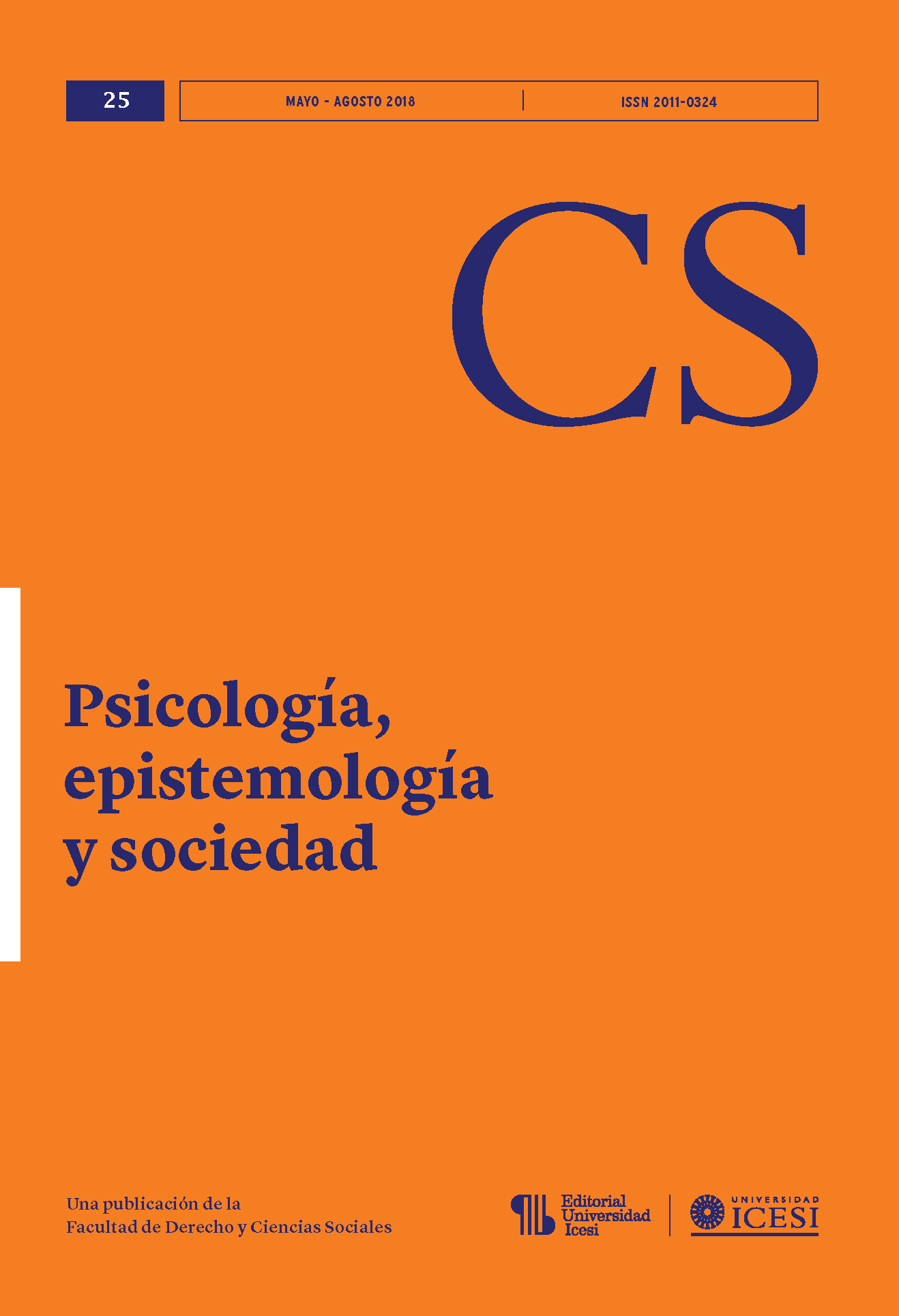Towards the Construction of a Proposal for the Political Training of Women, Born Through Struggle
DOI:
https://doi.org/10.18046/recs.i25.2701Keywords:
Political training, Social organizations, Peasant women, Social movilizationAbstract
The current Colombian situation demands politically trained subjects prepared to face the challenges that the post-agreement era brings with it, and from a political standpoint, foster the construction of a culture of peace that encompasses a variety of contexts and human areas. This article aims to present research undertaken with the women of the «Organization for the Urban and Rural Development of the Cauca» (ORDEURCA for its acronym is Spanish). The primary goal of the project was to develop a framework for the pedagogical basis of a political training program that allows the women of ORDEURCA to share their experiences of political training and at the same time construct the training program that they desired. The project was undertaken utilizing an Action Research methodology and encompassed the development of three workshops, the analysis of a series of interviews with the women and the leaders of ORDEURCA, and the study of field journals produced from the training meetings in which they participated. From the information obtained, it was possible to identify the main pedagogical models and strategies, as well as the central themes and principles used in their training.
Downloads
References
Acevedo, T. (2009). Yuruparí, Cúway o Bon. Obra inédita. Inírida. Colombia.
Agencia de la ONU para los Refugiados (2017). Los derechos humanos en el departamento del Cauca. Recuperado de: http://www.acnur.org/fileadmin/scripts/doc.php?file=fileadmin/news_imported_files/COI_264
Bouteldja, H. (2014). ¿Feministas o no? Pensar la posibilidad en un feminismo decololonial con James Baldwin y Audre Lorde. Tabula Rasa, 21, 77-89.
Cabrera, M. y Vargas, L. (2014). Transfeminismo, decolonialidad y el asunto del conocimiento: algunas inflexiones de los feminismos disidentes contemporáneos. Universitas Humanística, (78), 1-19.
CONPES Social. (14 de marzo de 2005). Metas y estrategias de Colombia para el logro de los objetivos de desarrollo del milenio - 2015. Recuperado de http://www.acnur.org/t3/ uploads/ media/COI_1547.pdf?view=1
Defensoría del Pueblo. (2016). Derechos humanos para vivir en paz. Recuperado de http://www.defensoria.gov.co/public/rendiciondecuentas/assets/regional-cauca2.pdf
Gómez, G. (2010). Investigación-acción: una metodología del docente para el docente. Recuperado de: http://relinguistica.azc.uam.mx/no007/no07_art05.htm#
Freire, P. (1976). La educación como práctica de la libertad. México: Siglo XXI.
Lugones, M. (2008). Colonialidad y género. Tabula Rasa, 9, 1-29.
Ministerio de Comercio, Industria y Turismo. (2016). Guía turística del Cauca. Recuperado de: http://www.mincit.gov.co/minturismo/publicaciones/17628/guias_turisticas_de_colombia
Musitu Ochoa, G. y Buelga Váquez, S. (2004). Desarrollo comunitario y potenciación (empowerment). En Introduccion a la psicología comunitaria (pp. 167-195). Barcelona: UOC.
Nani, D. (2012). La investigación-acción: cartografía de su epistemología y cientificidad cualitativas. Recuperado de http://www.redalyc.org/pdf/4959/495950249004.pdf
Organización para el Desarrollo Urbano y Campesino (s.f). Recuperado de http://ORDEURCAcna.blogspot.com.co
Palumbo, M. (2014). Las propuestas de formación política en movimientos populares entre la pedagogía y lo pedagógico. Intersticios de la Política y la Cultura, 3(6), 51-65.
Presidencia de la República de Colombia (2010). Lineamientos de la Política Pública Nacional de Equidad de Género para las Mujeres. Alta Consejería Presidencial para la Equidad de la Mujer. Recuperado de http://www.equidadmujer.gov.co/Documents/Lineamientos-politica-publica-equidad-de-genero.pdf
Revista Portafolio (2018). Guía de empresas colombianas. Recuperado de http://empresas.portafolio.co/departamento/CAUCA
Romero, M. (2012). Las unidades didácticas y el aprendizaje del profesor. Signos, Teoría y Práctica de la Educación, (3), 4-13.
Ron, X. (2014). Hacia la desoccidentalización de los feminismos. Revista de Estudios Antiutilitaristas y Poscoloniales, (4), 36-60.
Solarte, A. M., Rojas, E., Salcedo, L. y Rodríguez T. (2013). Análisis de la posesión territorial y situaciones de tensión interétnica e intercultural en el departamento del Cauca (Tesis de grado). Convenio Universidad Javeriana Cali – Incoder, Colombia.
Toda Colombia (s.f). La cara amable de Colombia. Departamento del Cauca. Recuperado de http://www.todacolombia.com/departamentos-de-colombia/cauca.html
Vía Campesina (2008). Declaración de los derechos de los campesinos. Recuperado de https://viacampesina.net/downloads/PDF/SP-3.pdf
Downloads
Published
Issue
Section
License
Copyright (c) 2018 Luisa Medina, Carolina Calvache, María Camila Ruiz, Claudia Lorena Burbano

This work is licensed under a Creative Commons Attribution-NonCommercial 4.0 International License.
© Reserved Copyright
Material in this publication may be reproduced without authorization, provided the title, author and institutional source is acknowledged.
The content published in Revista CS is distributed under the Creative Commons BY-NC 4.0 Attribution/Recognition-NonCommercial 4.0 International license.
You are free to:
Share — copy and redistribute the material in any medium or format.
Adapt — remix, transform, and build upon the material.
Under the following terms:
Attribution — You must give appropriate credit , provide a link to the license, and indicate if changes were made . You may do so in any reasonable manner, but not in any way that suggests the licensor endorses you or your use.
NonCommercial — You may not use the material for commercial purposes.












